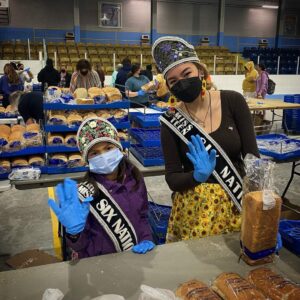Wearing his signature crumpled hat and a green “Go Family Farms” T-shirt, Canadian rock legend Neil Young raised some eyebrows in Washington last week when he told the American press that Fort McMurray, one of the communities directly affected by the oil sands project, looks like Hiroshima.
“When we got to Alberta we headed north and kept going north until we reached Fort McMurray, where we get much of the oil we are using here,” said Young. They call it “ethical oil” because it doesn’t come from Saudi Arabia or some country we are at war with.
[tweetable]“The point is, Fort McMurray looks like Hiroshima. Fort McMurray is a wasteland.” [/tweetable] Young has never been afraid to call out politicians or in this case big oil when he gets a chance to.In the late 1960’s, he wrote and recorded the song called “Southern Man”, which criticized the racism of the American south during those days.
It was in response to that song that Lynard Skynard wrote and recorded “Sweet Home Alabama”, which contains the lyric, “I hope Mr. Young will remember. A southern man don’t need him around anyhow.”
During a reunion tour of Crosby Stills Nash and Young, the band came under heavy criticism for his blistering lyrics against then, president George W Bush.
“The Indians, the Native people up there are dying,” Young went on. “There is fumes everywhere. You can smell it when you get to town. The closest place to Fort McMurray to where they are doing the oils sands work, is 25 to 30 miles out of town, and you can taste it. People are sick. People are dying of cancer because of this.”
He then put out a plea on behalf of the Indigenous communities being pushed aside by the big oil companies with the blessing of the Harper government.
“The Native people up there are threatened by this,” he said. “Their food supply is wasted. Their Treaties are no good. They have a right to live off the land like they always did. But there is no land left that they can live on. All the animals are dying. This is truly a disaster.”
Whether his words were taken to heart or even listened to is beyond his control, but like the rest of us, we must speak out against the destruction of the land and its people, even if it isn’t popular and even if it isn’t listened too.
By Jim Windle
WASHINGTON






Comments are closed.